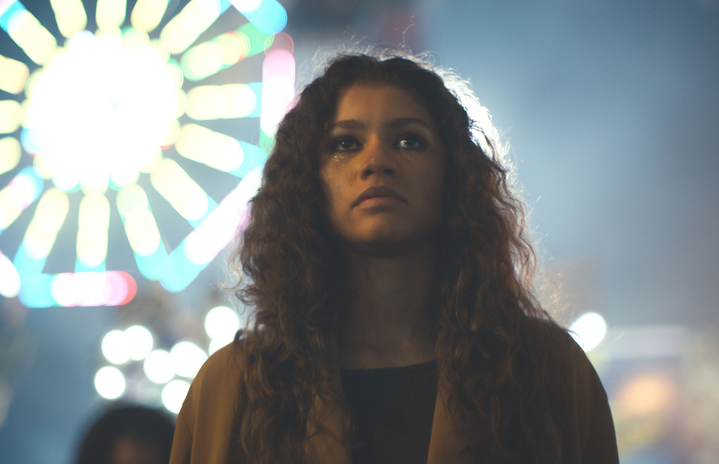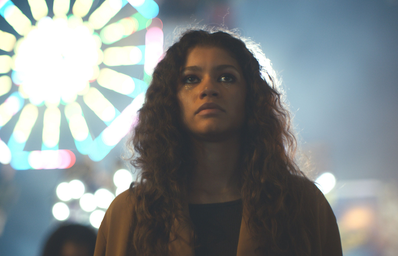From Skins to Euphoria, the genre of teen drama has been steadily gaining popularity over the recent years. Many have credited the surge of popularity in teen drama to the willingness to touch on topics usually shunned by society, such as depression, eating disorders, teen pregnancy and more. Credit where credit is due, however, this is not to say that teen drama is unproblematic. Having occasionally watched teen dramas, one of the major problems I have with them is how sex is portrayed, and the over-sexualisation of teenagers as a result of it.
Unrealistic and Glamourized Sex Scenes
I am not saying that teen dramas should abstain from talking about or portraying sex at all. This is because it would be naive to think that teenagers do not engage in sex. However, the issue I have is regarding how sex is portrayed in teen dramas.
More often than not, sex scenes in teen dramas are over glamourized, unrealistic and sometimes illegal. From having multiple partners, to being experienced in sex even if it is the characters’ first encounter, or even student-teacher relationships (that is another topic for another day), the list is endless.
Regardless of how sex scenes are portrayed, one thing is for sure: they set unrealistic expectations for their young impressionable audiences. They give off the impression that in order to have a fulfilling and normal teenage experience, one needs to engage in sex. As a result, these impressionable audiences could think their lives are “boring” and ultimately feel pressured to engage in such activities even if they do not feel ready.
Behind the Mask of Sex as Female Liberation
One of the most common and problematic portrayals of sex in teen dramas is it being a form of female liberation. In many teen dramas, female characters engage in sex with multiple partners as a way of taking ownership over her body. The concept behind this narrative is that she is breaking free from what society deems a female should be – modest, innocent and someone who is only sexually active with one partner, all of which have been used to oppress females throughout generations.
Now, I am all for seeing sex as a form of female liberation. But only if patriarchal notions that are ingrained within the term sex are dismantled along the way. In the patriarchal discourse, women are seen as objects who are there at the beck and call for the men’s accessibility to engage in sex. While the female characters are seemingly given agency as she is the one who initiates the sex, she is ultimately still there for the pleasure of the male characters. This is only made worse by how such sex scenes are shot. More often than not in such scenes, the focus of the camera is that of the female body and the pleasure that is inscribed on her face. Consequently, she is meant to be looked at, surveyed, she is the object of male desire. As such, not only is she seen as an object to be desired by the male characters, it has now extended to the gaze of the viewers. Ultimately, what could be seen as a form of female liberation only strengthens the notion of females as objects for sex. Disguised as liberation, this view of sex could have undesirable consequences for the young vulnerable female audience:
1. Increase Risk of Contracting Sexually Transmited Disease (STDs)
While such scenes in teen dramas are not the sole reason for the increase in the risk factor of contracting STDs, but with the gaps in sex education, many teenagers may engage in such behaviours without getting the proper protection needed. In fact, sex scenes in teen dramas may be the only form of “sex education” for teenagers whose family may find it taboo to have such conversations. Without proper knowledge, they are not equipped to make informed choices and this leaves them at a significantly higher risk of getting STDs.
2. Vulnerable to the Manipulation of Child Predators
Given that a teenager is still developing mentally as they have not reached adulthood, they might not realise the insidious intentions of a child predator when they are approached by them. In fact, mirroring the female characters in teen dramas, they might see getting into a sexual relationship with a predator as them taking agency of their own bodies. Moreover, even if these teens feel uncomfortable, they might not speak up as they have been programmed to view sex as taking ownership of one’s body.
Ultimately, one has to ask: how teen-friendly are teen dramas? In fact, many dramas that are targeted towards adults seem to be more teen-friendly, such as Gray’s Anatomy. While they too contain intimate scenes, it is not the focus of the drama itself. Why, then, do teen dramas feel the need to contain such explicit and raunchy scenes if dramas targeted towards adults do not do so? While I have no definite answer to this, what I do know is that if sex scenes are to be portrayed, they should not only be done realistically, but should also be done to fit within the narrative of the plot rather than for attracting viewership.


